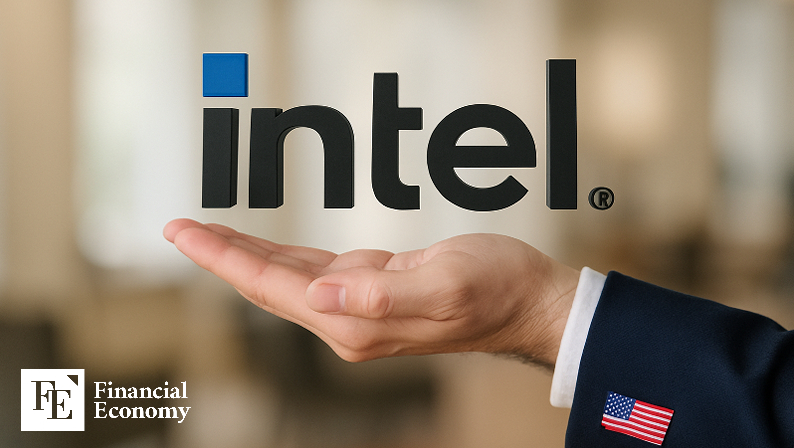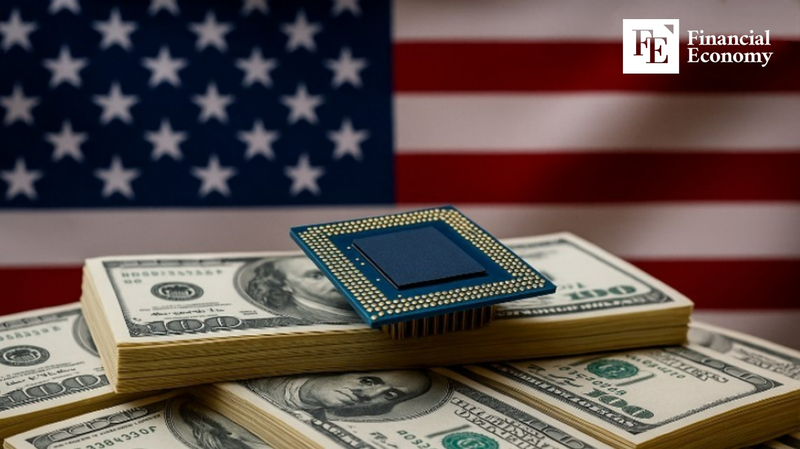U.S. Government Secures 10% Stake in Intel, Raising Prospect of Demands for Equity from Samsung, SK Hynix
Input
Modified
Trump Signals Continued Equity Acquisitions in Semiconductor Firms Additional Call Options Secured in Event of Foundry Contraction U.S. Government Pledges No Direct Involvement in Corporate Management

The Trump administration has acquired roughly 10% of Intel’s shares, emerging as its largest shareholder after converting promised subsidies into equity investment. President Donald Trump declared that his administration intends to pursue similar deals going forward, sparking concern that South Korean chipmakers such as Samsung Electronics and SK Hynix, which have received U.S. subsidies, may face demands to cede equity stakes as well.
Washington Post Criticizes “Overextended Deal Funded by Taxpayers”
On August 24 (local time), the Washington Post editorial board wrote that “American taxpayers will bear the $8.9 billion bill for the administration’s purchase of Intel shares.” The paper lambasted the decision, noting that “Intel, once hailed as a flagship of American industry, has declined into a lagging firm at the market’s periphery. Yet the government has chosen to overpay for equity in a company that has repeatedly missed strategic opportunities and stumbled in execution.”
On August 22, President Trump posted on his Truth Social platform: “The U.S. government now fully owns and controls 10% of the great American company, Intel.” Later that day, speaking at a White House event, he added, “We will be doing more deals like this.” His remarks closely aligned with a Reuters report from August 19 that Washington was reviewing options to convert subsidy payments for Micron, Samsung Electronics, and TSMC into equity participation, mirroring the Intel arrangement.
Intel Secures Capital Infusion Amid Financial Strain
Through this transaction, the U.S. government has overtaken BlackRock and Vanguard to become Intel’s largest shareholder. The investment comprised $5.7 billion in CHIPS Act subsidies and $3.2 billion in national security–linked funding for advanced semiconductor manufacturing. According to Intel, Washington will not exercise governance rights such as board representation or privileged access to internal information. However, the deal includes a five-year call option permitting the U.S. to purchase an additional 5% stake if Intel’s foundry business falls below half of its current share—a safeguard against foreign acquisition.
Given Intel’s prolonged restructuring and financial difficulties, the fresh capital is widely viewed as positive. Bloomberg reported that “the infusion of new funds will immediately strengthen Intel’s growth outlook, opening avenues for intellectual property development and new technology partnerships.” While the government does not hold voting rights, positioning itself as Intel’s largest shareholder signals external support, potentially easing market concerns over operational risks and helping attract new clients.
Yet doubts remain as to whether government equity will genuinely restore Intel’s competitiveness. Once the undisputed global leader in semiconductors, Intel has fallen behind in AI chips, lost share to AMD in its flagship CPU business, and struggled to gain traction in foundries. The Wall Street Journal cautioned that “government capital may delay the hard restructuring Intel needs, slowing the path to competitiveness. What the company requires is not financial relief but a recovery of technological capabilities to stand on equal footing with rivals.”

The US government's support for domestic companies is working against Korean companies.
The U.S. government’s equity participation could weigh heavily on Samsung Electronics and SK Hynix. Both firms secured subsidies under the Biden administration and are bound by existing agreements. With Samsung’s allocation finalized last December at $4.745 billion, a matching equity demand from Washington would equate to roughly a 1.6% stake—nearly equivalent to Chairman Lee Jae-yong’s 1.65% holding.
For Samsung, which has launched a major foundry recovery effort, the U.S. government’s backing of Intel poses competitive risk. Intel is attempting to catch up with TSMC and Samsung in 2nm-class production by advancing 18A (1.8nm) and 14A (1.4nm) nodes. Although volume production of 18A CPUs was slated for this year, industry analysts expect delays into next year due to yield issues. With fresh capital, Intel could accelerate development, while Washington could pressure major fabless clients such as Nvidia, Apple, and Qualcomm to allocate orders to Intel—a worst-case scenario for Samsung.
Some analysts, however, caution against assuming Washington will extend equity demands to foreign firms. The Wall Street Journal cited administration officials stating that while the government is reviewing such mechanisms, it does not plan to pursue equity stakes in large investors expanding U.S. operations, such as TSMC and Micron. Corporate pushback also serves as a deterrent: TSMC has reportedly warned it would return subsidies rather than concede equity if pressed by Washington.





















